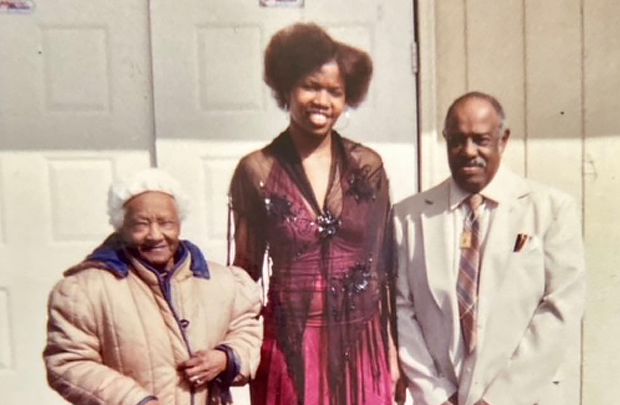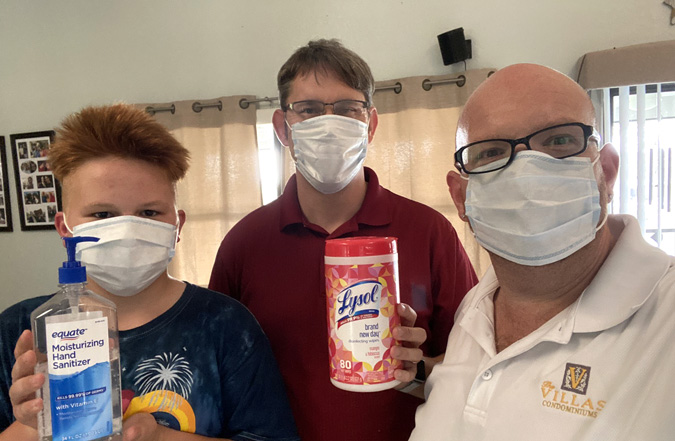
Jamerika Haynes-Lewis is a journalist and advocate for foster care children. Drawing on her previous experience in foster care as well as her perspective from being adopted, she shares advice for foster and adoptive parents in this article.
I went into foster care at the age of five years old. My family frequently moved, and my mother struggled to provide for our necessities. I remember being hungry and confused by a lack of daily routine. My preteen sister became my siblings’ and my surrogate parent. Our sister’s care provided a sense of stability, but it was a poor substitute for what a child needed.
One summer morning, I woke up just like any other day. However, my mother wasn’t home. When I went downstairs, I saw three adults standing in our living room. Their facial expressions showed concern. Before I knew it, my younger sister and I were riding in a police car to an unknown destination.
When we arrived, I looked out the window and saw a modest-sized green house with a chain-link fence. As I walked up to the door, there was a petite, elderly woman standing there. She had a welcoming smile on her face as she greeted me: “Hello Jamerika!” The way she said my name, it was as if she knew me my whole life.
Her name was Mrs. Johnson, and she would be my foster mother.
For the next five years, I lived with Mrs. Johnson and her husband Mr. Johnson
To me, they were my parents. We had family dinners, went to church, and even went on vacation. Any problem I had, I could tell Mrs. Johnson.
I did worry about when my sister and I would go home, especially as the years passed. But what helped me cope was the positive environment I had with the Johnsons. I also developed a strong sense of faith. This helped me to stay hopeful and focused on the future.
Even after my mother’s rights were terminated, the Johnsons continued to provide us with emotional support. I hoped we would stay with them. At the age of ten, I learned I would be moved to another home—a foster-to-adopt placement.
Living in a foster-to-adopt home was difficult for me
No one explained why the Johnsons couldn’t adopt me or why my mother’s rights were terminated. I coped by shutting down. Eventually, I was adopted by another family. After my adoption was finalized, my adoptive family pulled away, as they didn’t know how to connect with me.
Where I felt in control was at school. It was a constant in my life—a craft I could master. I was a straight-A student and involved in school clubs. Because of this, adults thought I was “okay.” But I wasn’t. Due to unresolved grief, I was plagued with anxiety and depression.
In my mid-twenties, I located a therapist who worked with foster and adoptive families
I had just graduated college and felt it was time to focus on my healing. Though others glossed over my grief, I refused to any longer. As a journalist, I didn’t feel I could tell other people’s stories if I didn’t know my own. My therapist validated this for me by sharing a valuable piece of advice: When we know who we are, we can figure out what we want to do with our lives.
As a motivational speaker, I’ve traveled the nation sharing my story, along with advice
When I meet foster and adoptive parents, I explain what the adults in my life did to support me. Below are pieces of advice that I share:
Do your research
This can help inform your decision about why you want to foster or adopt. There are resources out there where you can listen to other parents, foster youth and alumni, and adoptees’ stories. A good place to start is your local child welfare office. They offer resources and classes for prospective foster and adoptive parents. You’ll find that from newborns to teens, all youth need permanency.
Don’t be afraid to talk to a counselor
Fostering or adopting is a life-changing decision. A counselor who specializes in this area can help you figure out your feelings and motivations. They can also help you understand attachment, bonding, and how trauma affects youth and families.
Build your network
You don’t want to go on this journey alone. Reach out to other families who foster and adopt. It’s not only validating but will provide a community. You’ll also have the opportunity to do the same for others. Your network may include biological family members, including the youth’s siblings. When possible, do your best to maintain these connections. Most importantly, don’t be ashamed in asking for help.
Know that it takes time
Whether it’s filling out paperwork, passing your home study, or having a child placed with you, it takes time for things to progress. It may feel long and emotional. Your network can provide you with emotional support and guidance as you navigate this part of the process.
Your family may experience different feelings after a placement
This time can feel exciting! However, it can also be a time of grief for a child or teen. The circumstances surrounding placement can be fraught with negativity and despair. You may want to celebrate but this is a time for healing and restoration. Keep things low-key and find out what they need to feel safe. You may experience grief as you adjust to parenting. It’s okay to reach out during this time so you can receive the support you need.
Build a relationship with your child or teen
Patience is key. Share with them who you are and why they have come to live with you. Don’t assume they know or that someone else has told them.
It’s crucial to build credibility with the youth. They need to know you are dependable, trustworthy, and have a genuine interest in their wellbeing. Allow them to take their time opening up and be ready to listen when they do.
Remember that protection is paramount
Your child may confide in you about things that may be difficult to hear. This could be about abuse or other traumatic events they experienced. It can be distressing but acknowledge their bravery in sharing their story. This is when it’s good to have a counselor in your network working with your youth and family.
It’s important to keep your youth’s information confidential.
Make memories
Have fun! One of the best things you can do is activities with your family, whether it’s cooking family dinners, playing board games, or even sharing how your day went. Making memories will allow you to bond. It also teaches youth pro-social skills and gives them the chance to develop a personal identity.
Whether you’re a new or experienced parent, it can be hard to know what to do
However, those who remain open to learning can find fostering and adopting a fulfilling experience. Children and teens in the system want what other youth want—to feel seen, loved, and have a family to call their own. Despite my challenges in care, I’m grateful I had adults in my life who made me feel that I mattered.


